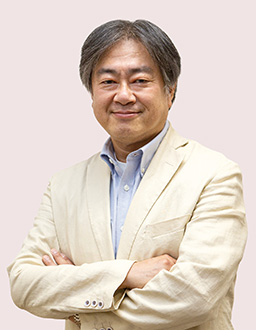
Professor, Graduate School of Humanities, Tokyo Metropolitan University
The archaeology of the Jomon and other prehistoric periods currently faces a major turning point. This is evidenced by the fact that the results of conventional archaeological work have often been significantly modified by the results of physical and chemical analyses. It has become extremely difficult to approach the real image of the past only by archaeological methods, and in order for the archaeology of the prehistoric period to develop in the future, archaeology itself needs to shift from its traditional humanities-based area and be reborn as a new academic field. In this research field, we propose the establishment of an integrative bioarchaeology that combines current archaeological methods with natural science approach such as dating, isotope analysis, and genome analysis, focusing mainly on excavated materials such as human bones, animal and plant remains, in Japan.
In addition, through the creation of integrative bioarchaeology, this field of research will present a new theory of the formation of Japanese people. Through the practice of integrative bioarchaeology, this project is also an attempt to nurture and produce outstanding human resources for the next generation who can transcend the boundaries of the humanities and sciences and play an active role on an international level. This is in line with the objective of the Research on Academic Transformation Areas, which is to "lead a major change and transformation in the existing academic system and direction.
Japan possesses a wealth of human remains and archaeological research results that are rare anywhere in the world. However, the analysis of human remains in Japan lags behind that of other countries. Therefore, it is necessary to create and construct a new academic framework that integrates archaeology and natural science as comprehensive knowledge. There is also an urgent need to train researchers who can handle such hybrid research.
Japan, which is in a leading position in terms of research environment, should take the initiative in this area and lead international research. This is an important aspect of prehistoric human history research.
When this project is completed, the current research methods in prehistoric archaeology will be revolutionized, and this should be called the "Archaeological Revolution of Reiwa era".
